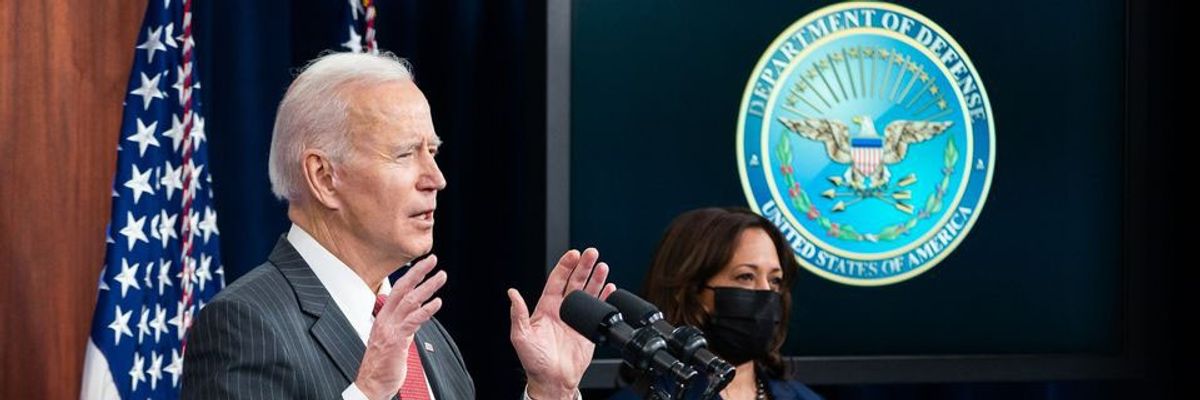President Joe Biden said Thursday that he “can’t picture” U.S. troops remaining in Afghanistan by next year, but it is “going to be hard to meet the May 1 deadline” for withdrawal under the Doha peace agreement.
“It is not my intention to stay there for a long time,” the president told reporters at a press conference. “We will leave. The question is when we leave.”
Under a peace deal signed with the Taliban in Doha last year, U.S. forces are supposed to depart Afghanistan by May 2021. No U.S. troops have been killed in battle since the Doha agreement was signed, even as the war between the Taliban and the Afghan government has intensified in recent months.
House Foreign Affairs Committee Chairman Adam Smith (D–Wash.) suggested on Wednesday that the Biden administration would ask the Taliban for a temporary extension, as first reported by Responsible Statecraft.
“It’s a general feeling that May 1 is too soon, just logistically,” he said, citing conversations with National Security Adviser Jake Sullivan and Defense Secretary Lloyd Austin. “Job one is to try to get back in to talk to the Taliban about at least giving us more time.”
Smith said that the Biden administration wanted to explore its options for a longer-term counterterrorism deployment but was “skeptical” that the Taliban or a future Afghan unity government “could be comfortable with our presence” in the long run.
















